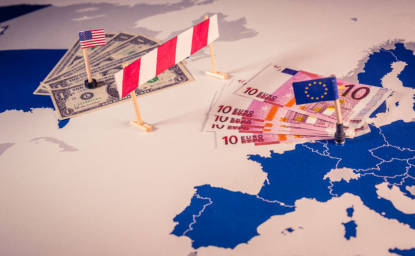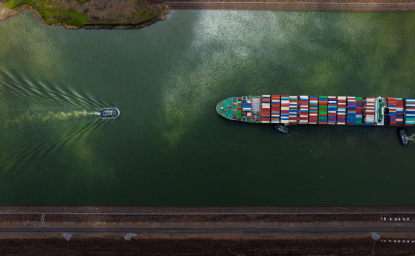232. The Politics of the EU's Eastward Enlargement

The European Union's (EU) eastward enlargement is said to be a well-designed strategy aimed at overcoming the divisions in Europe and strengthening the process of European integration. This paper will question the very essence of this claim. It will, first, show that the EU's policies towards the candidate states from Eastern Europe emerge more by default than by design. Second, it will show that the EU's policies, while overcoming some divisions in Europe, also created new ones. And third, it will show that widening the Union makes its deepening quite difficult. In other words, the long-term vision of a highly integrated European federation is being challenged by the enlargement project.
Is it possible to assert that the EU's enlargement develops more by default than by design? After all, the basic conditions for enlargement were spelled out as early as 1993 at the European Council in Copenhagen and subsequently specified in the Agenda 2000. The adoption of the acquis communitaire by the applicants is one of the conditions for accession, and the acquis contains some 20,000 laws, decisions and regulations, spanning nearly 100,000 pages. However, it would be wrong to conclude from this that the Union has a clear strategy of enlargement. After more than a decade of deliberations, negotiations and pre-accession steps, the EU is still unable to give a straight answer to a simple question: who is going to join the Union, why and when? Moreover, it is unclear who is going to benefit or lose from the enlargement process. Furthermore, we do not know who exactly is in charge of enlargement in broader democratic terms. The multiplicity of political, economic and administrative criteria is also a problem. If there are so many admission criteria how can we know which are truly important? The Agenda 2000 provided no weighting of individual criteria and no system of judging their importance. As a consequence, the entire process is following a sequence of accidental and arbitrary decisions and is being held hostage by various parochial agendas (national and sectoral alike).
Another problem stems from contradictory policies currently pursued by the Union. The conflict between the enlargement and the Schengen projects is most striking both in terms of purpose and spirit. (The Schengen regime epitomizes the EU's efforts to install hard external borders with its neighbors through the tightening up of immigration controls, curbing flows of asylum seekers, and increasing visa restrictions.) Enlargement is basically about inclusion, while the hard border regime is at core about exclusion. Enlargement is about overcoming the division of Europe, while the hard border regime is about creating, or re-creating, dividing lines in Europe. Enlargement is about providing equal access to East Europeans, the hard border regime is about perpetuating inequality in Europe. The Union's officials try to conceal the exclusionary character of Schengen and formally, Schengen is also, if not largely, about free movement of people and judicial assistance. However, there is plenty of evidence that East Europeans see Schengen as nothing else but a symbol of inequality, division and exclusion. There is also plenty of evidence that many West Europeans see enlargement largely as a function of Schengen rather than the other way around. Schengen not only undermines the enlargement process, it also creates problems for the existing forms of regional cooperation, undermining East European efforts to cope with their ethnic minorities within or outside their borders. If the main rationale behind the EU's enlargement is to reduce inequality, division and exclusion in post-Cold War Europe, the policy of hardening the Union's external borders is likely to undermine rather than enhance this objective, regardless of any noble reasons and qualifications.
Finally, there is the problem of adjusting the enlargement process to the long-term vision of European integration. This vision is usually state-centric. While few politicians in contemporary Europe would advocate the creation of a European super-state, most would oppose a Union acting in concentric circles and along variable geometric patterns. Most politicians believe that European integration should be about increased convergence across various functional fields and within a given territory. The problem is that enlargement to Eastern Europe would dramatically reduce the prospects for early convergence. Despite impressive progress in reforms and adoption of the Union's acquis communitaire, the new members are likely to remain quite different for a long time from the current members in terms of economic development, institutional and legal infrastructure, and culture. An enlarged European Union with a high level of diversity could not but act in crosscutting circles and along a variable geometry more closely resembling a neo-medieval empire than a neo-Westphalian federal state. In other words, it would be very difficult for the Union to provide an overlap between its functional and geographic borders. This is why some leading European politicians such Fischer, Delors or Chirac have suggested the creation of a hard core in the EU within which greater convergence would be easier to achieve. However, this would deprive East European countries of the greatest benefit of the enlargement project - joining the more advanced countries of Western Europe on equal terms. This would also condemn the East Europeans to a peripheral status. After all, the concepts of "core" and "periphery" are like two sides of a coin that cannot be separated.
Nevertheless, these findings do not really question the wisdom of the enlargement project. Nor is it justified to accuse the Union's officials of misleading public opinion about the very nature and implications of enlargement. If anything, the findings of this article suggest miscomprehension rather than misinformation on the part of European leaders. European officials, (and also academics) are still having problems in adjusting their visions and projects to the new post-Soviet and post-modern environment. Governing Europe under the present conditions requires not only new instruments and new decision making-structures, but most of all new paradigms, which are still in short supply at present. Simultaneous deepening and widening of the Union represents a huge challenge in both conceptual and practical terms, and it is no wonder that the official rhetoric is full of contradictions, wishful thinking and ambivalence.
Does this mean that we are condemned to either relativism or impotence? This paper provides a negative answer to this question and tries to suggest a set of conceptual paradigms that may help us to combine enlargement with further integration. Enlargement is at odds with only some, and rather outdated, visions of European integration. Most notably, the vision of an "ever closer Union" carefully exercising the policy of "conditional inclusion" vis-a-vis Eastern European neighbors looks largely utopian in view of the findings presented in this paper. It would therefore be advisable to abandon this vision and replace it with one corresponding better to the emerging situation. The enlarged European Union is likely to resemble a neo-medieval empire rather than a neo-Westphalian federal state. Such an empire would be too diversified and too loosely connected to allow any careful institutional engineering to succeed. The European Union would be unable to avoid the dilemma of inclusion and exclusion, but it could try to find a system of compensating the exclusion costs to potential losers.
Enlargement and integration should not be seen as a zero-sum game. This paper, however, shows that sometimes the Union cannot avoid making hard choices between conflicting evidence. Students and practitioners of European integration usually acknowledge this, but they would like to see enlargement adjusted to the long-standing integration project and not the other way around. The argument of this paper is just the opposite: namely that the integration project should be re-adjusted in view of the forthcoming enlargement. European integration was and still is in its essence about providing Europe with more prosperity and security. Today, these two objectives can hardly be met without the some sort of EU enlargement. However, it would be wrong to sacrifice the enlargement project on the altar of an abstract project of the European federation.
Jan Zielonka spoke at an EES Discussion on April 16, 2001. The above is a summary of his presentation. Meeting Report #232.
Author

Global Europe Program
The Global Europe Program is focused on Europe’s capabilities, and how it engages on critical global issues. We investigate European approaches to critical global issues. We examine Europe’s relations with Russia and Eurasia, China and the Indo-Pacific, the Middle East and Africa. Our initiatives include “Ukraine in Europe”—an examination of what it will take to make Ukraine’s European future a reality. But we also examine the role of NATO, the European Union and the OSCE, Europe’s energy security, transatlantic trade disputes, and challenges to democracy. The Global Europe Program’s staff, scholars-in-residence, and Global Fellows participate in seminars, policy study groups, and international conferences to provide analytical recommendations to policy makers and the media. Read more

Explore More
Browse Insights & Analysis
Africa Year In Review 2024: From Headlines to Trendlines


